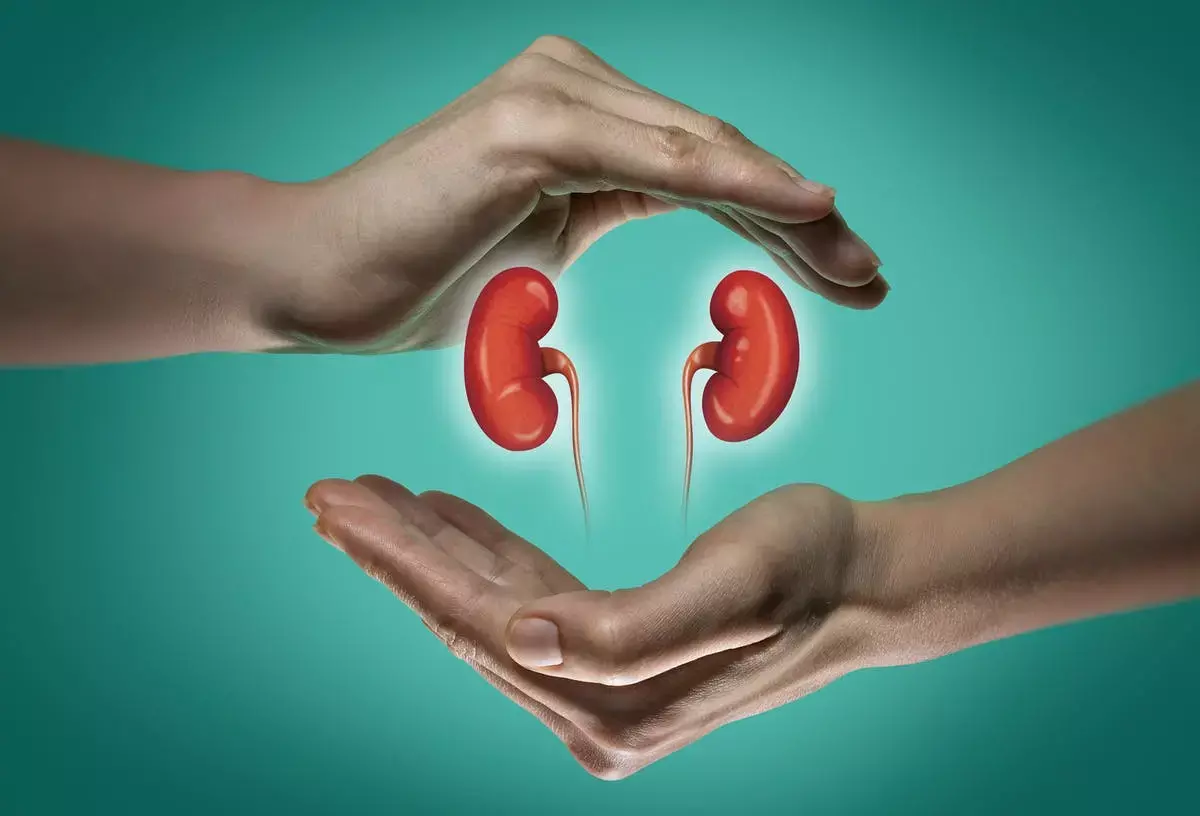- Home
- Medical news & Guidelines
- Anesthesiology
- Cardiology and CTVS
- Critical Care
- Dentistry
- Dermatology
- Diabetes and Endocrinology
- ENT
- Gastroenterology
- Medicine
- Nephrology
- Neurology
- Obstretics-Gynaecology
- Oncology
- Ophthalmology
- Orthopaedics
- Pediatrics-Neonatology
- Psychiatry
- Pulmonology
- Radiology
- Surgery
- Urology
- Laboratory Medicine
- Diet
- Nursing
- Paramedical
- Physiotherapy
- Health news
- Fact Check
- Bone Health Fact Check
- Brain Health Fact Check
- Cancer Related Fact Check
- Child Care Fact Check
- Dental and oral health fact check
- Diabetes and metabolic health fact check
- Diet and Nutrition Fact Check
- Eye and ENT Care Fact Check
- Fitness fact check
- Gut health fact check
- Heart health fact check
- Kidney health fact check
- Medical education fact check
- Men's health fact check
- Respiratory fact check
- Skin and hair care fact check
- Vaccine and Immunization fact check
- Women's health fact check
- AYUSH
- State News
- Andaman and Nicobar Islands
- Andhra Pradesh
- Arunachal Pradesh
- Assam
- Bihar
- Chandigarh
- Chattisgarh
- Dadra and Nagar Haveli
- Daman and Diu
- Delhi
- Goa
- Gujarat
- Haryana
- Himachal Pradesh
- Jammu & Kashmir
- Jharkhand
- Karnataka
- Kerala
- Ladakh
- Lakshadweep
- Madhya Pradesh
- Maharashtra
- Manipur
- Meghalaya
- Mizoram
- Nagaland
- Odisha
- Puducherry
- Punjab
- Rajasthan
- Sikkim
- Tamil Nadu
- Telangana
- Tripura
- Uttar Pradesh
- Uttrakhand
- West Bengal
- Medical Education
- Industry
Metabolic Acidosis Might Worsen Kidney Outcomes in Patients with Stage 3-5 CKD

Metabolic acidosis is a common complication of advanced chronic kidney disease (CKD) and is associated with several adverse outcomes, including progressive CKD, cardiovascular events, impaired immune response, bone and muscle loss, and death. A recent study suggests that the presence of metabolic acidosis worsens the renal outcome and increase the risk of mortality in patients with stage 3‒5 CKD. The research has been published in the BMC Nephrology on May 19, 2021.
Identification of additional modifiable risk factors is necessary to develop new treatment strategies for CKD. Therefore, Dr Navdeep Tangri and his team conducted a study to quantify the association of metabolic acidosis with CKD progression and mortality in a large U.S. community-based cohort.
It was a longitudinal, retrospective cohort study of 51,558 non-dialysis-dependent patients with stage 3‒5 CKD from Optum's de-identified integrated electronic health records. The researchers selected cohorts of patients with confirmed metabolic acidosis or normal serum bicarbonate levels based on 2 consecutive serum bicarbonate values: 12 to < 22 mEq/L or 22-29 mEq/L, respectively, 28‒365 days apart. The major outcome assessed was ≥ 40 % decline in estimated glomerular filtration rate (eGFR), renal replacement therapy (chronic dialysis or kidney transplant), or all-cause mortality (DD40). The researchers also assessed each component of the composite outcome.
Key findings of the study were:
Upon analysis, the researchers found that the unadjusted 2-year incidence of adverse renal and fatal outcomes was significantly worse among patients in the metabolic acidosis group than those who had normal serum bicarbonate levels:
- 48 % vs 17 % for DD40,
◊ 10 % vs 4 % for ≥ 40 % decline in eGFR,
◊ 20 % vs 6 % for renal replacement therapy, and
◊ 31 % vs 10 % for all-cause mortality.
- Over ≤ 10-year period, for each 1-mEq/L increase in serum bicarbonate, they noted that the adjusted hazard ratio for DD40 was 0.926.
- For ≤ 2-year period, they noted that the adjusted odds ratio for DD40 was 0.873.
The authors concluded, "In this large community cohort of patients with stage 3‒5 CKD, the presence of metabolic acidosis was a significant, independent risk factor for the composite adverse outcome of CKD progression, renal replacement therapy, and all-cause mortality (DD40)."
For further information:
Dr Kartikeya Kohli is an Internal Medicine Consultant at Sitaram Bhartia Hospital in Delhi with super speciality training in Nephrology. He has worked with various eminent hospitals like Indraprastha Apollo Hospital, Sir Gangaram Hospital. He holds an MBBS from Kasturba Medical College Manipal, DNB Internal Medicine, Post Graduate Diploma in Clinical Research and Business Development, Fellow DNB Nephrology, MRCP and ECFMG Certification. He has been closely associated with India Medical Association South Delhi Branch and Delhi Medical Association and has been organising continuing medical education programs on their behalf from time to time. Further he has been contributing medical articles for their newsletters as well. He is also associated with electronic media and TV for conduction and presentation of health programs. He has been associated with Medical Dialogues for last 3 years and contributing articles on regular basis.
Dr Kamal Kant Kohli-MBBS, DTCD- a chest specialist with more than 30 years of practice and a flair for writing clinical articles, Dr Kamal Kant Kohli joined Medical Dialogues as a Chief Editor of Medical News. Besides writing articles, as an editor, he proofreads and verifies all the medical content published on Medical Dialogues including those coming from journals, studies,medical conferences,guidelines etc. Email: drkohli@medicaldialogues.in. Contact no. 011-43720751


